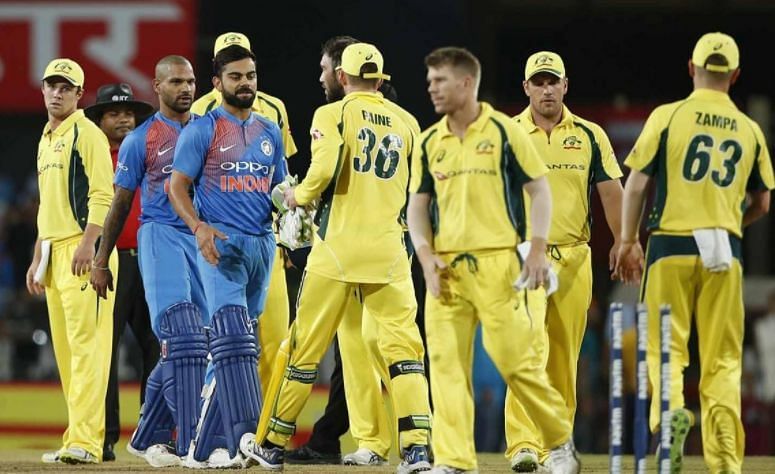
Did inconsistent application of new ICC rules cost Australia the first T20I?

Confusion regarding the implementation of the new ICC rules which came into effect on September 28 not only left the players in the first T20I between India and Australia confused, but it may have also cost the visitors the match. While the new rules weren't in place for the ODI series, it seems as though the rules were inconsistently applied for the first T20I in Ranchi.
The Decision Review System (DRS) was available and the powerplay overs were determined according to the new rules, however, the number of overs available for a bowler when the game has been curtailed was followed under the old rules according to Australian opener Aaron Finch.
In accordance with the new rules, the powerplay were determined. Here is what Law 28.7. Restrictions on the placement of fielders
28.7.6 In circumstances when the number of overs of the batting team is reduced, the number of Powerplay overs shall be reduced in accordance with the table below. For the sake of clarity, it should be noted that the table shall apply to both the 1st and 2nd innings of the match.

Here are the new ICC rules regarding the number of overs per bowler. According to 13.9 Number of Overs per Bowler:
13.9.2 In a delayed or interrupted match where the overs are reduced for both teams or for the team bowling second;
13.9.2.2 for innings of rescheduled length of between 5 and 9 overs, no bowler may bowl more than two overs.
With Australia having six overs to defend 48, under the new rules, the maximum each bowler can bowl should be no less than two overs and the powerplay would be for just two overs. Which meant that in the six-over contest on Saturday in Ranchi, Australia should have had the option of just three bowlers bowling two overs apiece to complete the six overs.
However, while the powerplay was only for two overs, only one bowler was able to bowl two overs in the first T20I and the rest had to bowl an over each. This meant that instead of the overs being split between the three front-line bowlers in Nathan Coulter-Nile, Andrew Tye and Jason Behrendorff, only Coulter-Nile was able to bowl two overs. The remaining four overs were delivered by Behrendorff, Tye, Adam Zampa and Daniel Christian.
Whether the new rules being applied would have had a major impact or not is still debatable as the target wasn't much, but it certainly would have helped Australia's cause and made their job of defending 48 a lot easier.
The inconsistency in the application of rules was surprising, especially when considering the fact that Finch himself admitted that they didn't think the DRS was available in this match, as it was previously agreed that the new rules won't be in place for this series.
Finch himself admitted, "It didn't have any effect on the game. I just thought it was quite odd to have mixed and matched the rules for this series."
Australian captain David Warner echoed Finch's sentiments when he said his side didn't "deserve to win". While it might have been inconsequential with regards to the result of the game, inconsistency in applying the new rules isn't something that portrays the governing body in good light.